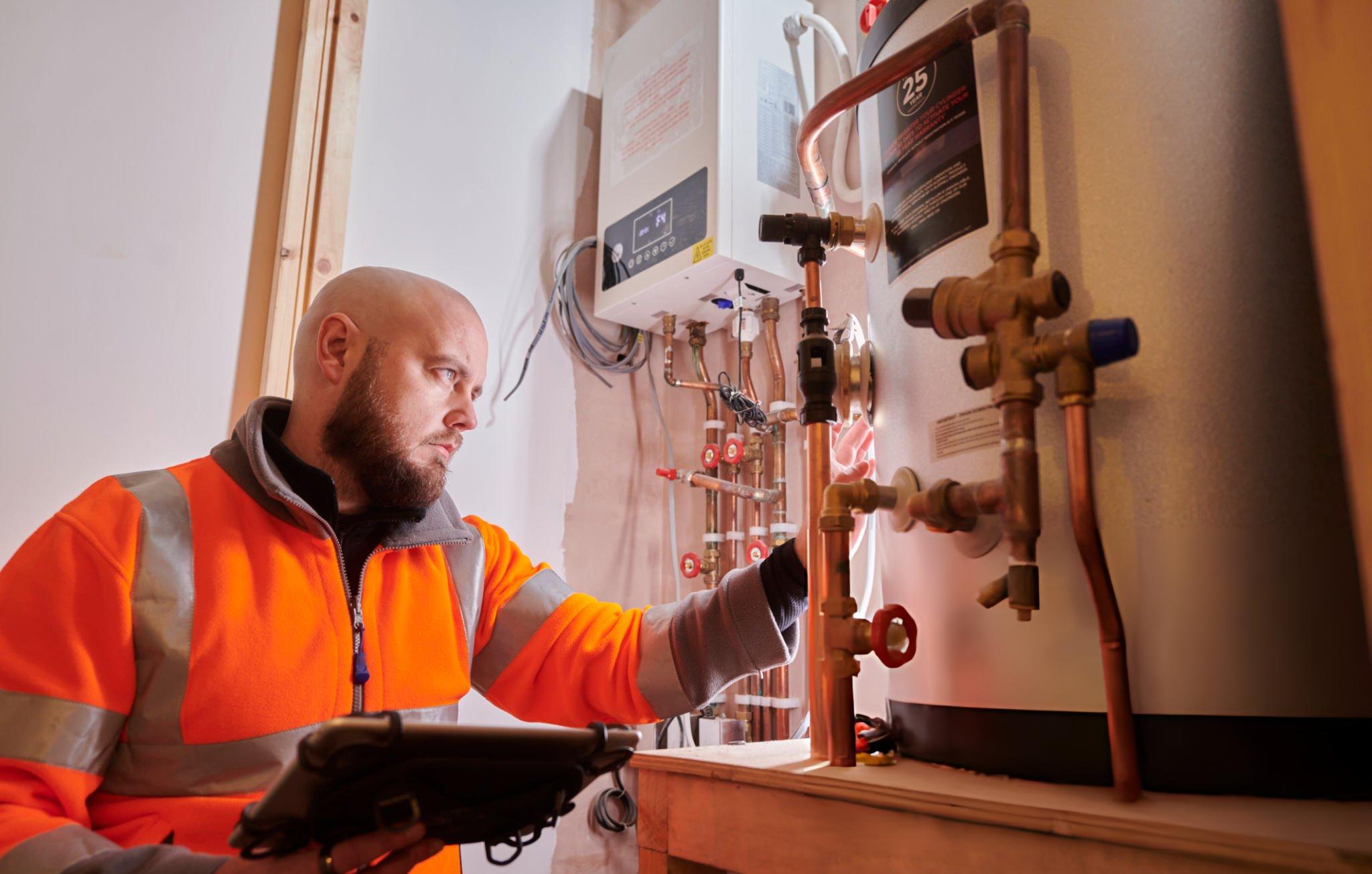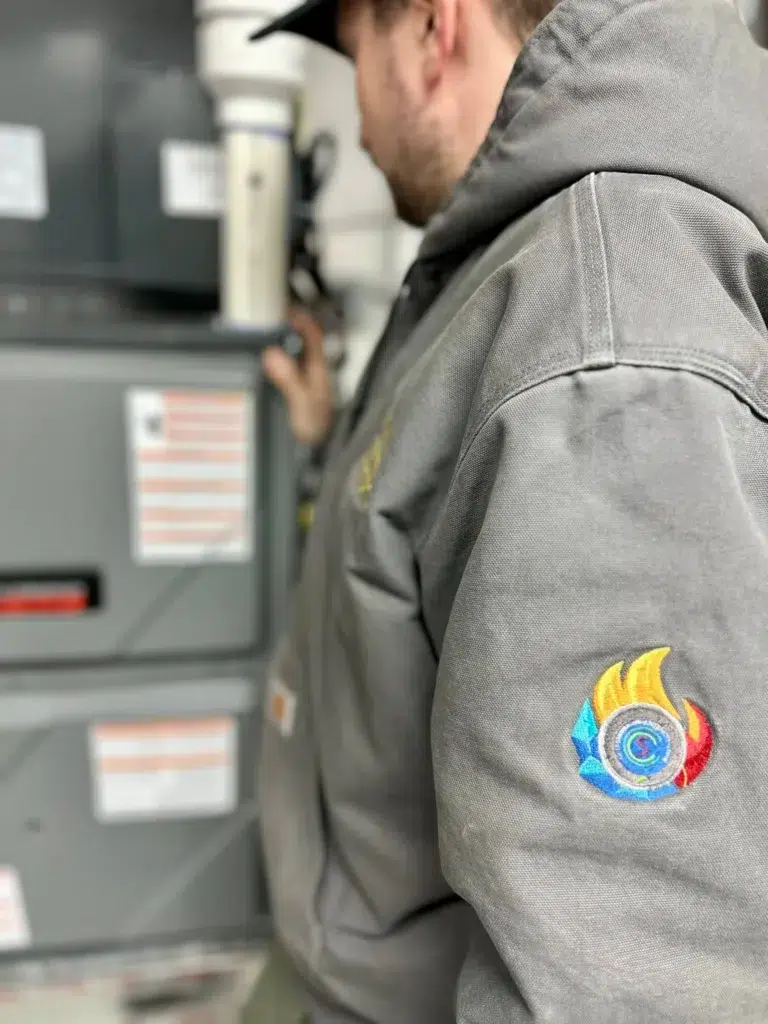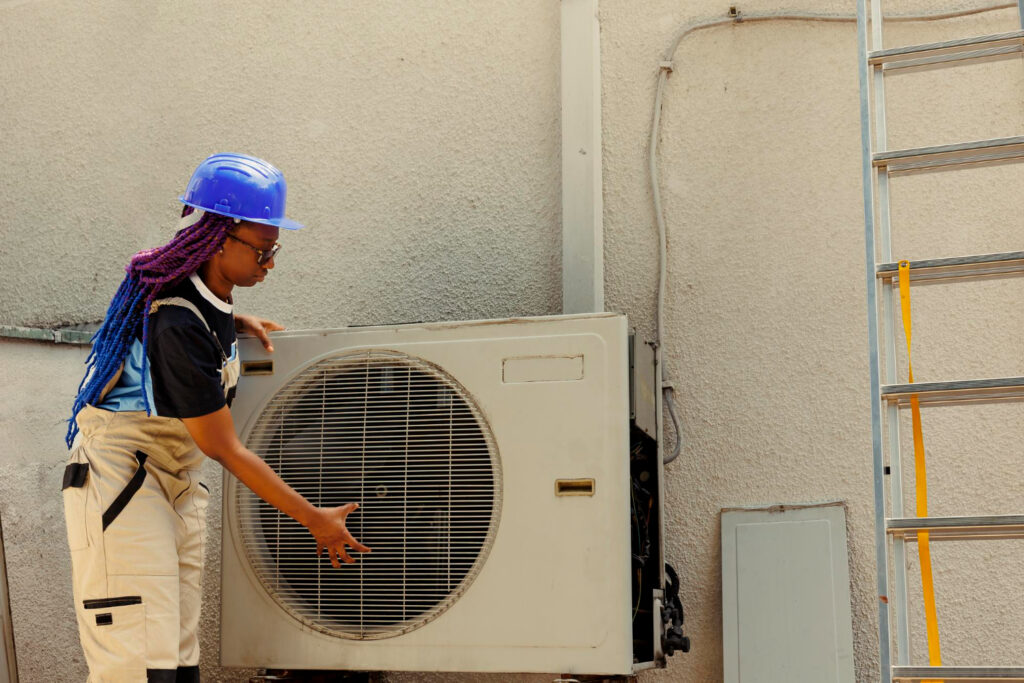Boiler systems for homes are a reliable way to stay warm when winter hits, especially in places like Maryland. Instead of pushing out hot air like forced heat systems, boilers warm your home by heating water and moving that warmth through radiators or under the floors. For many Maryland homeowners, especially in older homes around Baltimore or Columbia, boiler systems for homes are what keep things cozy when temperatures drop. If you’re considering installing a system or want to understand yours better, now is a good time to learn how they work, what to expect, and how to keep them running smoothly.
How Boiler Systems Work in the Home
Boiler systems for homes produce heat by warming water and sending it through a network of pipes. These pipes connect to radiators throughout your house or run under floors to create even, gentle warmth. Unlike furnaces, which push heated air through ductwork, boiler systems keep the temperature consistent across spaces.
There are two main types you’ll find: steam boilers and hot water boilers. Steam boilers heat water to create steam, which rises to radiators. Hot water systems heat water, but not to boiling—just enough to circulate through pipes and radiators. Hot water systems are more common today, as they are easier to adjust and typically more energy efficient.
A big advantage is quieter operation, since boiler systems don’t have big blowers or ducts. Instead of rushing air, you get stable, silent warmth. This also cuts back on dust and dry air during those long winter months.
Boiler Benefits for Maryland Winters
When winter settles in, boiler systems for homes deliver heat that lasts and doesn’t dry you out. Maryland’s cold spells can be tough, with back-to-back chilly days that test even the best systems. Boilers handle those stretches by keeping warmth steady and quiet all season.
One benefit many homeowners notice is that rooms feel less dried out compared to forced-air systems. The radiators or heated floors keep warmth circulating, and even after the system cycles off, heat lingers much longer than it would if you were relying on blown air.
Many Baltimore rowhouses and mid-century homes already have radiator setups. Upgrading the boiler is often a simpler, more cost-effective move than tearing out walls to install ducts for AC or heat. This makes boiler systems a solid match for older Maryland homes.
Complete Climate Services can service both steam and hot water boiler systems, providing seasonal maintenance, repairs, and professional safety checks across the Baltimore and Columbia areas.
Maintenance and Care Through the Heating Season
Boiler systems are built to last, but like any hardworking appliance, they need maintenance. One simple habit is checking your pressure gauge every so often through the winter. If pressure is too low, heating suffers. If too high, your boiler might shut down as a safety measure.
Keep vents, radiators, and pipes clear of clutter and blockages. Furniture, rugs, or curtains can block radiant heat, making your system work harder than needed.
Once a year—ideally before the first cold snap—it’s smart to have a professional come out for a boiler inspection. They’ll check for leaks, worn parts, and test safety controls. Even a small drip or mineral buildup can get worse, so a fresh eye every fall keeps your system running better and longer.
Signs a Boiler May Need Repair or Replacement
Your boiler will usually warn you when something is off. Watch for these trouble signs:
– Uneven room temperatures even after hours of running
– Banging, hissing, or knocking sounds from pipes or radiators
– Any kind of leak or persistent puddle near the unit
– Boiler age over 15 years with declining efficiency or rising energy bills
A slight gurgle isn’t cause for worry, but loud or persistent noises need a look from a pro. If you see water on the floor or under radiators, call for service before it leads to water damage. Early fall is the best time to deal with these problems, so you’re not caught off guard when the coldest weather moves in.
Questions to Ask Before Getting a Boiler
Before buying and installing a new boiler — or replacing your old one — it’s important to consider the following:
– How big is your home, and how many floors does it have?
– How old is the building, and is there an existing radiator system?
– Are windows and insulation in good shape?
– What are your comfort goals—steady gentle warmth or rapid temperature changes?
It’s always smart to have an expert evaluate your space. They can recommend the right type and size, evaluate pipework, and make sure you’re not overspending or choosing a system that’s too small for your needs.
Keeping Warm, Even When Temperatures Drop
When it comes to Maryland winters, boiler systems for homes give you a kind of warmth that’s tough to beat. Rooms feel cozier, the temperature stays steady, and you avoid those swings that come from some forced-air setups. With the proper care and seasonal checkups, your system can keep delivering comfort year after year.
If you have questions about upgrading, replacing, or getting the most from your boiler, a bit of planning and a check-in with a professional now makes all the difference before the coldest days hit.
FAQs
What’s the difference between a boiler and a furnace?
A boiler heats water and provides warmth through radiators or pipes under floors. A furnace heats air and blows it through ducts. Boilers offer steadier, quieter warmth and less dryness.
How long does a boiler last?
Most systems run well for 15 to 20 years. Over time, efficiency may drop, so older systems should be watched more closely during the heating season.
Why are my radiators warm on the bottom but cool on top?
Air could be trapped inside the system, which stops hot water from filling the whole radiator. A technician can bleed the radiator and clear up the issue.
Is it okay to bleed a radiator myself?
We suggest letting a professional do this, since pressure or another problem might also be at play. Professional help keeps it safe and prevents bigger issues.
When’s the best time to get a boiler checked?
Fall is the best season to have it inspected. That leaves time for any needed repairs or upgrades before you need your system every day.
Thinking about upgrading your heating before winter hits hard in Baltimore or Columbia? If your current setup isn’t keeping up or just sounds louder than it used to, now’s a good time to take a closer look. Whether your system’s getting older or you’re just ready for something more efficient, we’re here to walk you through it. Our boiler systems for homes are built for Maryland weather and local homes of all sizes. Contact Complete Climate Services today to find the right solution before cold weather sets in for good.



